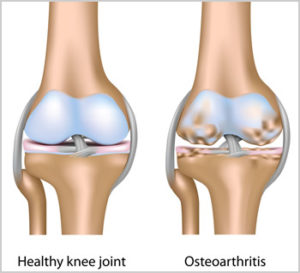 Five million people in the UK are said to live with Osteoarthritis, also known as degenerative arthritis or degenerative joint disease, is a group of mechanical abnormalities involving degradation of joints, including damage to the tissue between bones known as articular cartilage and subchondral bone. Symptoms may include joint pain, tenderness, stiffness, locking, and sometimes an effusion. When bone surfaces become less well protected by cartilage, bone may be exposed and damaged. As a result of decreased movement secondary to pain, regional muscles may atrophy, and ligaments may become more lax. While Osteoarthritis is very common in middle-aged and older people, up to two thirds of people suffering from osteoarthritis are of working age, and its symptoms can range from very mild to very severe. The disorder most often affects hands and weight-bearing joints such as knees, hips, feet and shoulders, but can affect almost any joint in the body.
Five million people in the UK are said to live with Osteoarthritis, also known as degenerative arthritis or degenerative joint disease, is a group of mechanical abnormalities involving degradation of joints, including damage to the tissue between bones known as articular cartilage and subchondral bone. Symptoms may include joint pain, tenderness, stiffness, locking, and sometimes an effusion. When bone surfaces become less well protected by cartilage, bone may be exposed and damaged. As a result of decreased movement secondary to pain, regional muscles may atrophy, and ligaments may become more lax. While Osteoarthritis is very common in middle-aged and older people, up to two thirds of people suffering from osteoarthritis are of working age, and its symptoms can range from very mild to very severe. The disorder most often affects hands and weight-bearing joints such as knees, hips, feet and shoulders, but can affect almost any joint in the body.
How Regenerative Therapy can be used to treat patients with Osteoarthritis?
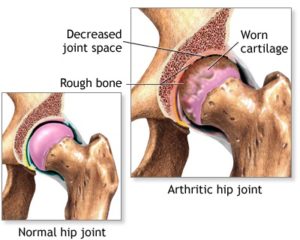 The majority of complications in Osteoarthritis patients are related to the deterioration of cartilage that cushions the ends of bones in your joints. Cartilage is a firm, slippery tissue that permits nearly frictionless joint motion. In Osteoarthritis, this surface become rough. Eventually, if the cartilage wears down completely, patients will be left with bone rubbing on bone.
The majority of complications in Osteoarthritis patients are related to the deterioration of cartilage that cushions the ends of bones in your joints. Cartilage is a firm, slippery tissue that permits nearly frictionless joint motion. In Osteoarthritis, this surface become rough. Eventually, if the cartilage wears down completely, patients will be left with bone rubbing on bone.
Regenerative Treatments provided by Medica Institute is designed to target these areas within the joints to help with the growth of new cartilage cells. Stem cells are multi-potent and have the ability to differentiate into cartilage cells (Chondrocytes).
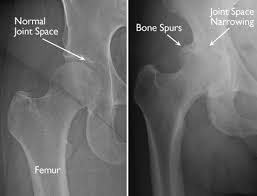 It works like this: Under local anaesthesia, a bone marrow and/or adipose tissue sample is collected from the patient and a blood sample is withdrawn and placed into a centrifuge to produce a rich concentrate. Those cells are then injected back into the patient’s damaged joint or given to the patient using a standard IV dip to help kick-start healing. Regenerative therapy induces the production of natural anti-inflammatories which can assist with Osteoarthritis pain and swelling in the joint area.
It works like this: Under local anaesthesia, a bone marrow and/or adipose tissue sample is collected from the patient and a blood sample is withdrawn and placed into a centrifuge to produce a rich concentrate. Those cells are then injected back into the patient’s damaged joint or given to the patient using a standard IV dip to help kick-start healing. Regenerative therapy induces the production of natural anti-inflammatories which can assist with Osteoarthritis pain and swelling in the joint area.
The procedure is performed in an outpatient setting and only takes a few hours. No general anaesthesia is required and most patients don’t need post-operative pain medication. Also, patients typically return to work within a week or two and they resume physical activity much faster than after invasive surgery. Extracting the cells directly from patients reduces the risk of rejection; many report feeling marked improvement in their joint within one to three months.

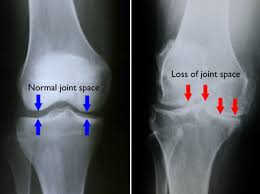 Over 6 months following the treatment and possibly after more than one treatment session, improvements are slowly noticed with build-up of healthy tissue and slowing down of the inflammatory process resulting in symptoms being decreased or reversed, this is only possible with Regenerative therapy.
Over 6 months following the treatment and possibly after more than one treatment session, improvements are slowly noticed with build-up of healthy tissue and slowing down of the inflammatory process resulting in symptoms being decreased or reversed, this is only possible with Regenerative therapy.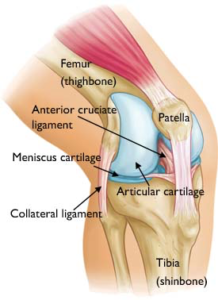 Research theories (1) are, when stem cells are injected into an arthritic joint, they might:
Research theories (1) are, when stem cells are injected into an arthritic joint, they might: